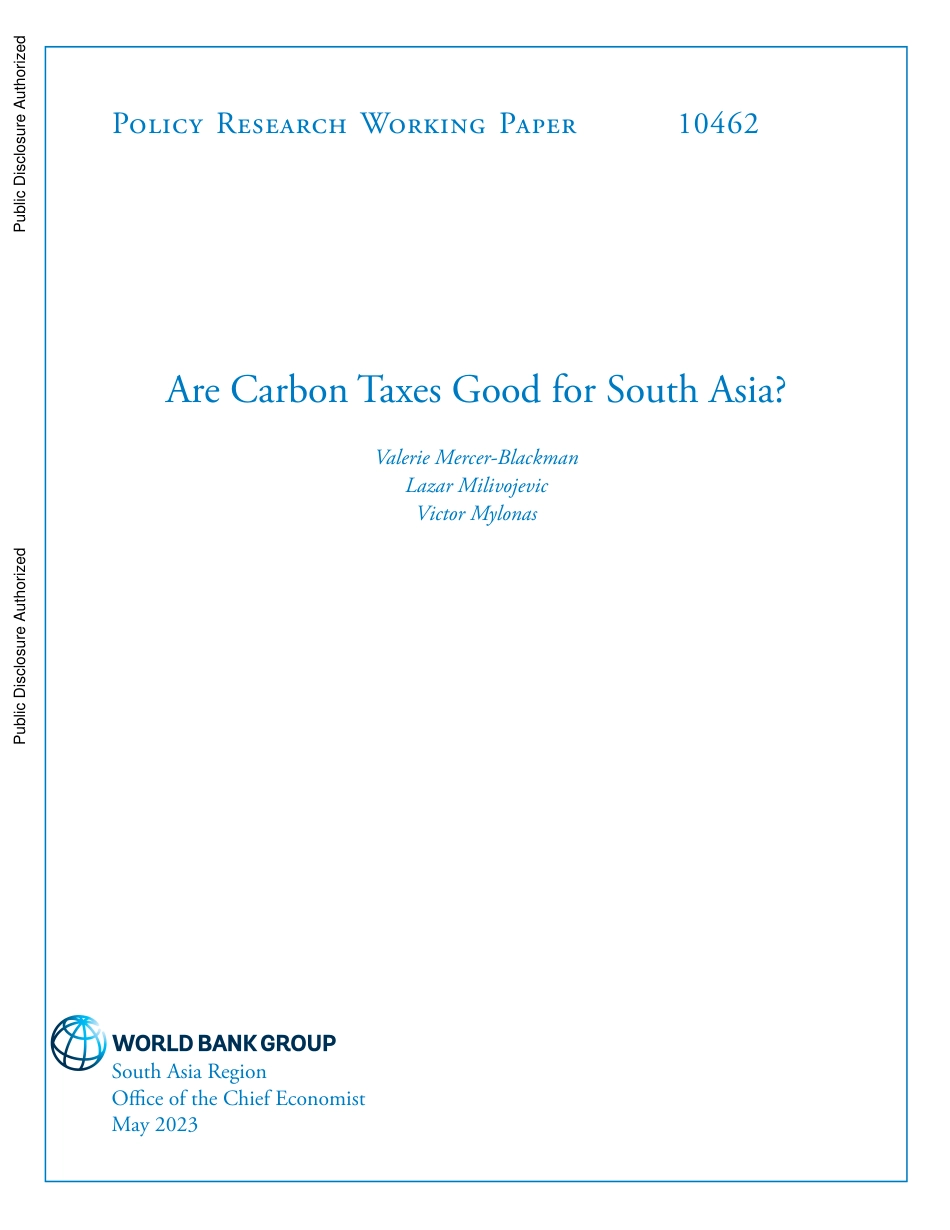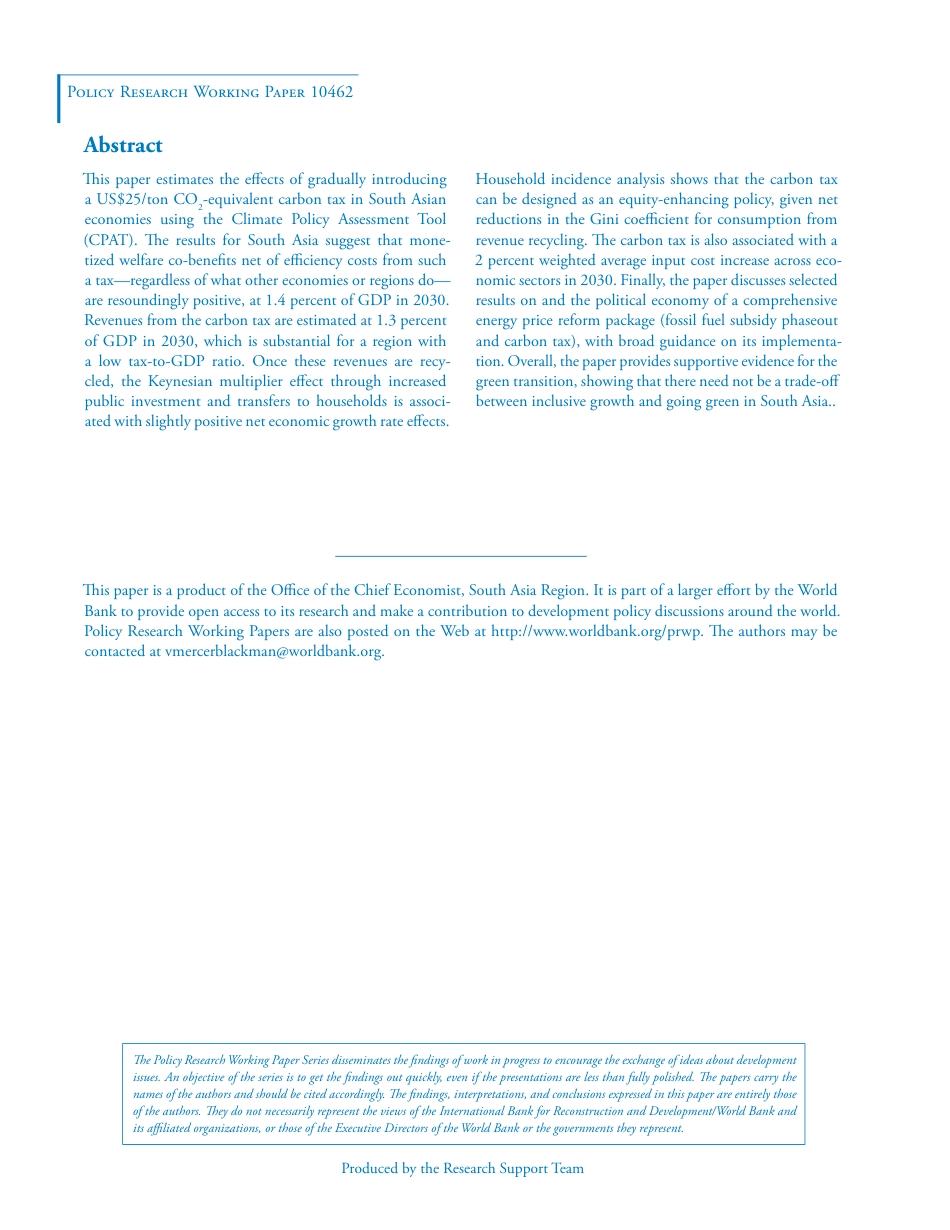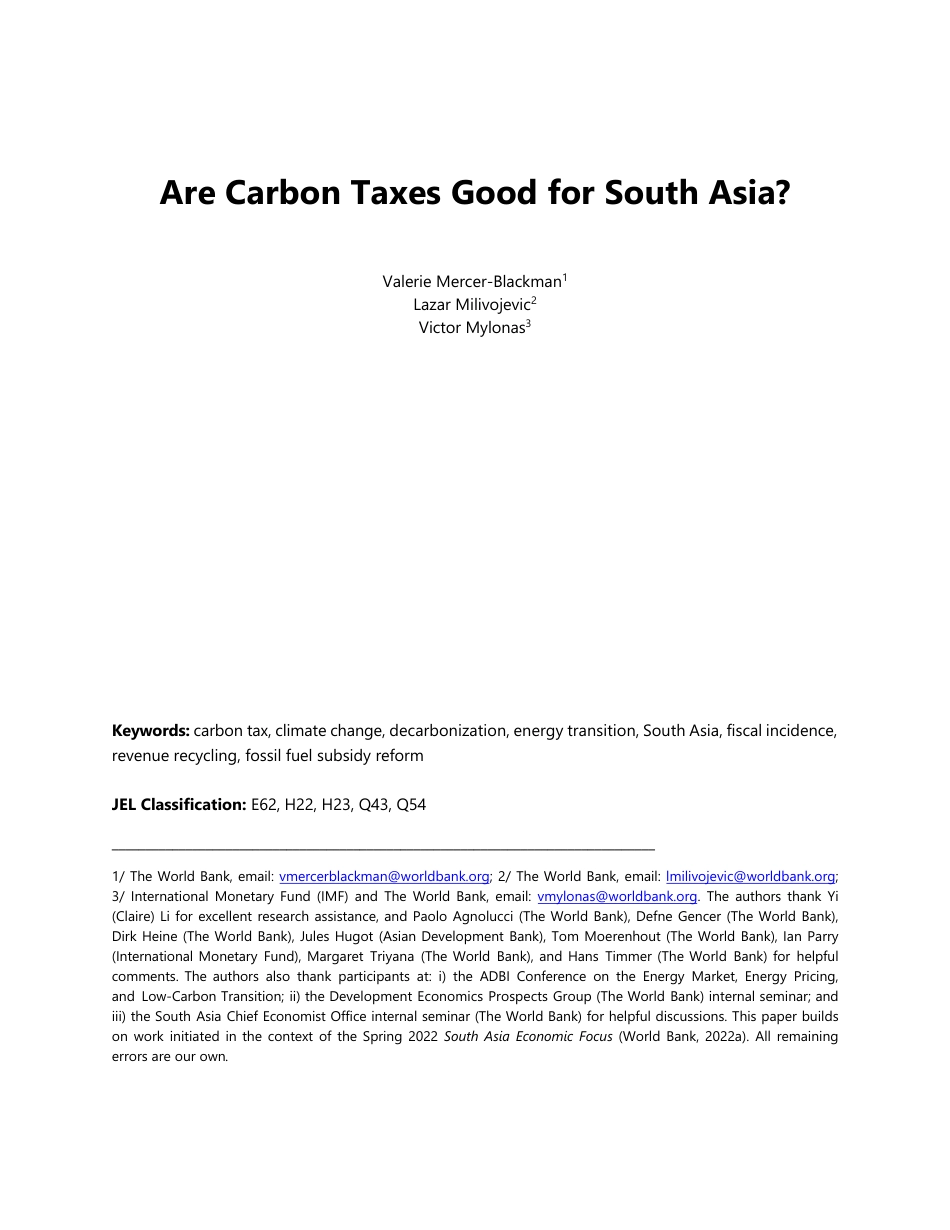Policy Research Working Paper10462Are Carbon Taxes Good for South Asia?Valerie Mercer-BlackmanLazar MilivojevicVictor MylonasSouth Asia RegionOffice of the Chief EconomistMay 2023 Public Disclosure AuthorizedPublic Disclosure AuthorizedPublic Disclosure AuthorizedPublic Disclosure AuthorizedProduced by the Research Support TeamAbstractThe Policy Research Working Paper Series disseminates the findings of work in progress to encourage the exchange of ideas about development issues. An objective of the series is to get the findings out quickly, even if the presentations are less than fully polished. The papers carry the names of the authors and should be cited accordingly. The findings, interpretations, and conclusions expressed in this paper are entirely those of the authors. They do not necessarily represent the views of the International Bank for Reconstruction and Development/World Bank and its affiliated organizations, or those of the Executive Directors of the World Bank or the governments they represent.Policy Research Working Paper 10462This paper estimates the effects of gradually introducing a US$25/ton CO2-equivalent carbon tax in South Asian economies using the Climate Policy Assessment Tool (CPAT). The results for South Asia suggest that mone-tized welfare co-benefits net of efficiency costs from such a tax—regardless of what other economies or regions do—are resoundingly positive, at 1.4 percent of GDP in 2030. Revenues from the carbon tax are estimated at 1.3 percent of GDP in 2030, which is substantial for a region with a low tax-to-GDP ratio. Once these revenues are recy-cled, the Keynesian multiplier effect through increased public investment and transfers to households is associ-ated with slightly positi...



